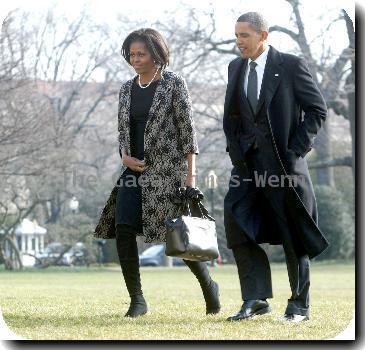Russian foreign minister says nuclear arms treaty could be signed by April
By APTuesday, March 9, 2010
Russia sees new nuclear arms treaty by April
MOSCOW — A new treaty limiting U.S. and Russian strategic nuclear arsenals could be signed within two or three weeks, Russian news agencies cited Foreign Minister Sergey Lavrov as saying Tuesday.
Lavrov spoke as U.S. and Russian negotiators resumed talks in Geneva on a successor to the 1991 Strategic Arms Reduction Treaty, which expired in December.
“We would push for a conclusion in two to three weeks,” Lavrov was quoted as saying. “For this there is every chance.”
Russian officials have said a main sticking point concerns U.S. plans to build a defensive missile shield in eastern Europe.
Russia has insisted that the new treaty acknowledge a link between defensive and offensive systems, and Lavrov was quoted as saying that a legally binding provision would be included.
The Russian and U.S. presidents agreed during their July summit that the new treaty would contain such a provision, but experts say negotiations had bogged down over the language on the linkage.
Romania agreed in January to install anti-ballistic missile interceptors as part of the revamped U.S. missile shield, replacing the Bush administration’s plans for interceptors in Poland and radar in the Czech Republic.
President Barack Obama’s decision to scrap the Bush-era missile defense sites was praised last year by the Kremlin, which had fiercely opposed the earlier plan as a threat.
But Russian officials have expressed irritation over what they see as U.S. flip-flopping on the missile plans.
Experts have said the new plan is less threatening to Russia because it would not initially involve interceptors capable of shooting down Russia’s intercontinental ballistic missiles. But officials in Moscow have expressed concern that it is still designed against Russia.
Other problems in the talks are believed to concern monitoring and verification procedures. Obama and Russian President Dmitry Medvedev agreed in July that warheads should be capped at 1,500 to 1,675 from about 2,200 each side has now.
Michael Parmly, spokesman for the U.S. diplomatic mission in Geneva, confirmed treaty talks had restarted but declined to speculate on expectations for a quick conclusion.
“We’re committed to concluding negotiations,” Parmly said.
__________
Associated Press writer Bradley S. Klapper in Geneva contributed to this report.
Tags: Barack Obama, Eastern Europe, Europe, Geneva, International Agreements, Moscow, North America, Nuclear Weapons, Russia, Switzerland, United States, Weapons Administration, Weapons Of Mass Destruction, Western Europe



